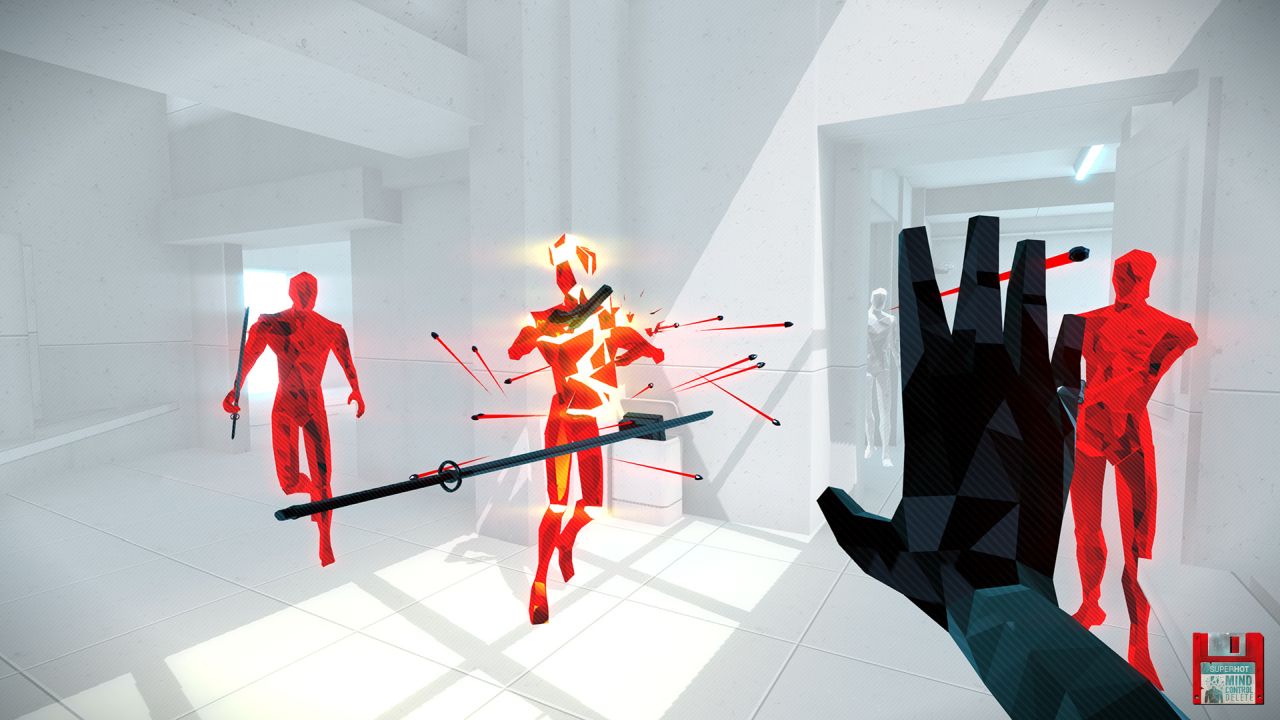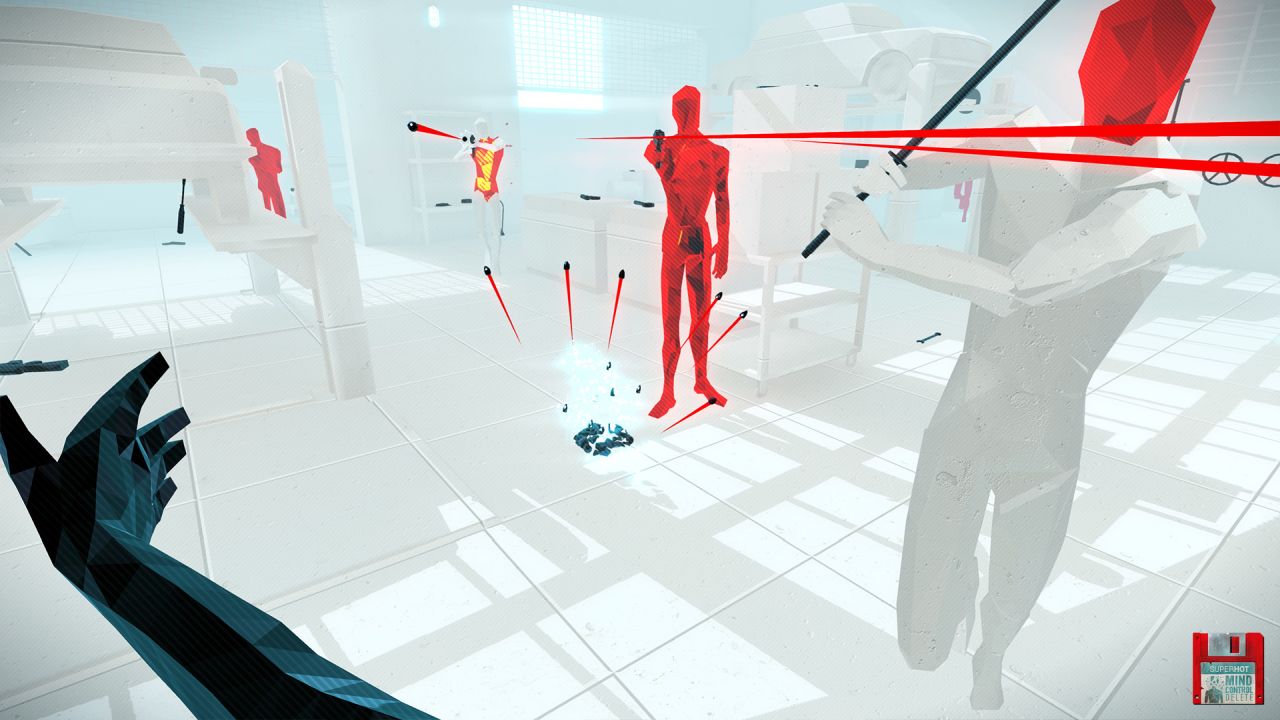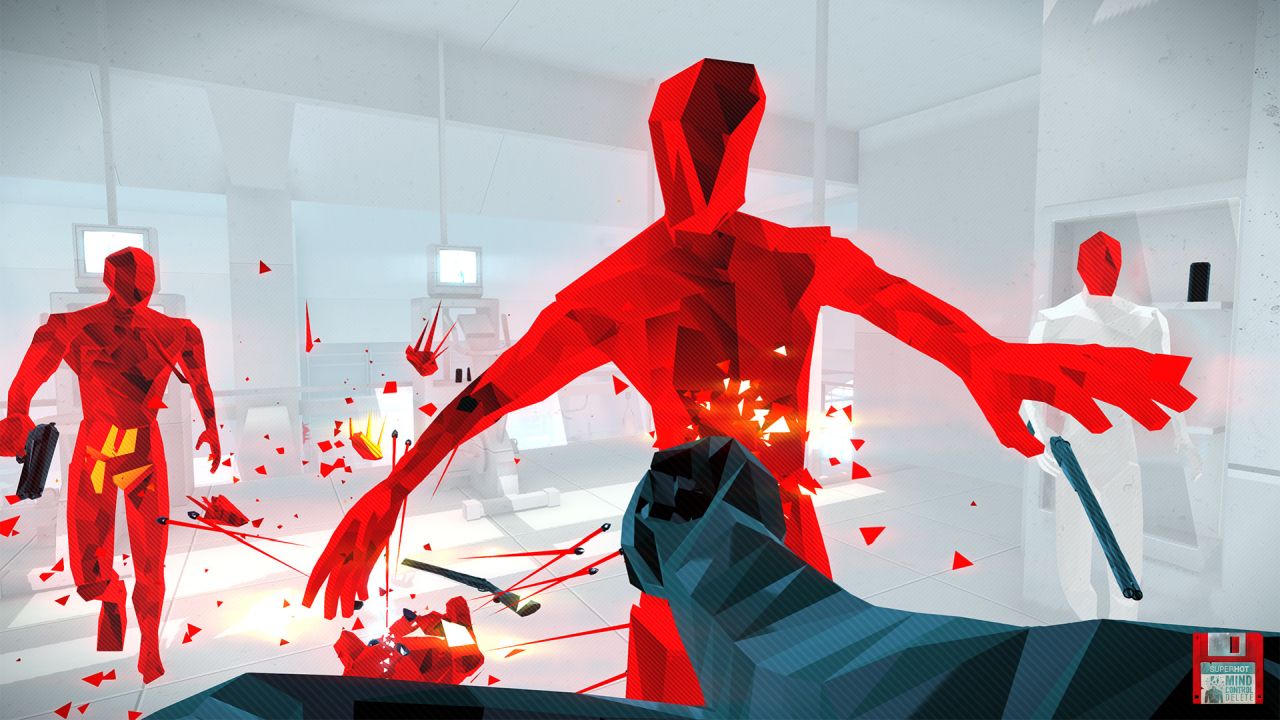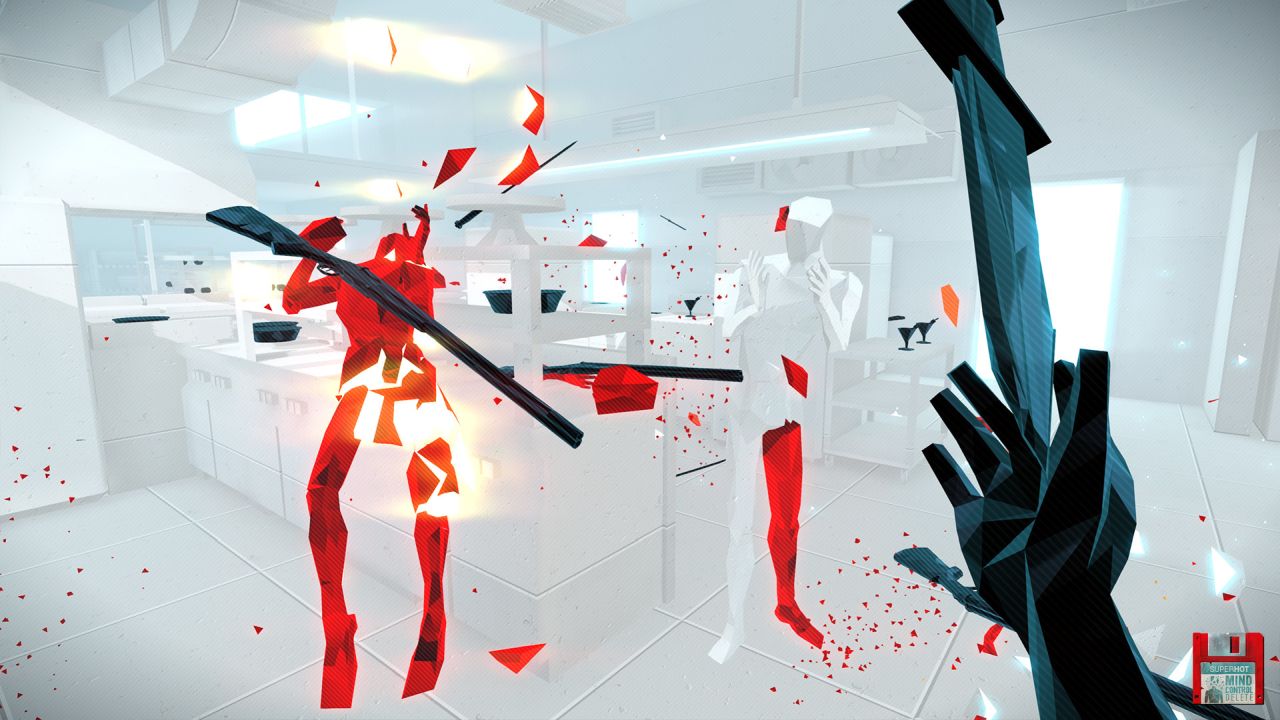Superhot: Mind Control Delete Review
A satisfying follow-up that expands on the unique formula
I sometimes wonder if game developers read my reviews. I imagine them scrolling through, sipping coffee, and having feelings about word choices. Sometimes that paranoia is justified. I’ve had developers reply to my reviews or preview coverage. I’ve had them reach out to me about word choices. And sometimes when I play a sequel to a game I reviewed, I think I see my criticisms being reflected in the new product. Like they read my issues with the game and had a direct response. I know that largely isn’t true, my tiny corner of the internet doesn’t keep developers up a night, but when you write online and are neurotic by nature, this is the kind of stuff you think about. My criticisms with Superhot were that it was too short and lacked a challenge. The game didn’t get going until the end and by then there was only an hour left of it. The new standalone expansion, Superhot: Mind Control Delete feels like a direct reaction to that criticism, as it expands the playtime and difficulty of the game to something far more comprehensive and interesting. There are still pacing issues, but Mind Control Delete is an impressive feat, especially considering it's a free upgrade for Superhot owners. If the initial game was an appetizer, Mind Control Delete is the main course, and it’s going to leave you uncomfortably full and almost certainly satisfied.

Superhot is a game about obsession; over time the player-character becomes unable to think about anything except Superhot. Mind Control Delete is about attempting to break free of that obsession. There’s not much narrative apart from scenes to set the tone, but themes about erasing the game and ending your time with Superhot surface again and again. Though the game’s cycle is somewhat impossible to escape - which seems to be the point. As you leave behind your obsession, do you not also leave behind a part of yourself? The delivery is hit and miss. A lot of the early stuff feels a little ham-fisted, but there’s a sequence toward the end of the game that’s a real high point and is a rare combination of gameplay, aesthetic, and narrative in a way Mind Control Delete usually can’t manage. Much of this adventure follows a pattern of playing through a series of levels to unlock abilities, a story section, or a new enemy type - separating story and gameplay in a way that is a little frustrating. It’s better than Superhot, but it’s the weakest element to the expansion.
The best part, then, is the overall design, which is quite different from the original. The crux of the game is still that time moves in correlation to player movement. So when you’re standing still, things will crawl along and if you break into a run, things will play out in hyper-speed. This control over time allows players to dodge bullets, get the drop on enemies, and survive impossible odds.
When the first game came out, I thought of it as a simulation of a stylized fight sequence in an action movie. How an un-armed hero can manage to get the drop on a room full of enemies. However, I think that might have been a little misguided. The game isn’t nearly so cinematic as to create that feel. Instead, what Superhot is doing is allowing players to recreate that moment while playing a competitive shooter when you go on a hot streak. When you dial in while playing Overwatch and get a play of the game, or when you get an Ace is Valorant - that’s the feeling Superhot is artificially manufacturing with its unique gameplay.

Mind Control Delete is a much bigger game than Superhot. Instead of playing a linear series of missions, the game gives you an overworld screen to navigate. There is a grid with different nodes at intersecting lines; some nodes give you a story beat, some introduce enemies, some give you special abilities, and some are a series of levels. When you choose a level node, you’ll also pick a hack that you’ll have while playing all levels in a node. These continuous hacks can be abilities like being able to recall your katana after throwing it or being able to take over enemy bodies. You will have two lives while playing through a series of levels (unless you use a hack to give you three), any time you are hit, you’ll lose a life. If you lose both lives you have to start the series over from the beginning. It can be punishing when you get to a final level of a series and lose your final life. Video game purists, longing for the days of limited lives will definitely enjoy this new challenge. And it really can be challenging; the levels are procedurally generated, meaning you can find yourself in truly tricky situations. The endless modes from the first game have also returned, but aren’t accessible until you’re in the back-half of the campaign.
That said, I do think Mind Control Delete loses a little authenticity with these generated levels. The encounters do, at times, feel like pieces of the same puzzle being swapped around and the randomness makes for the rare impossible scenario. One time a level began with an enemy in mid-punch, and the slight movement cost me my final heart.
The difficulty is alleviated by the game giving you smaller hacks mid-level. These mid-level hacks can include abilities like starting with a random gun, gaining extra health, or healing a life that was lost. After you beat a node of levels, you lose all the mid-level abilities and are back to choosing from one of the major abilities at the start of the series.
There are also new enemy types and traps. Some enemies explode when you shoot them, spewing shrapnel, and there are proximity mines you can trip. There are also three kinds of enemies that can’t be killed and will chase you around the level, adding even more tension to the encounters.

All of these additional elements add to a stew of mechanics and gameplay that would be the envy of so many other games. It turns Mind Control Delete into more of a puzzle game than a shooter as you try to balance your abilities, enemies, traps, and weapons without losing a life. The final result is something really special and a gameplay experience that’s unlike any other. Sure, the pacing might not be great and you might start to notice repeated level elements, but most of what is here will feel totally original and comes together surprisingly well.
The aesthetic is more of what we saw in Superhot, which I’m not crazy about. There are about eight different level locations and they all are a little rote by the end of the game’s 10-hour playtime. Playing them repeatedly and learning their layout by heart is part of what the game expects of the player - I just wish it had more personality. The minimalism and monochromatic colors are all about function because the game doesn’t care to bother with much else. There’s one location that has a soundtrack and you can feel the game spring to life with some fun music to liven things up. But it’s fairly short-lived. The exception, of course, being a stretch toward the end that is truly inspired - a real show-y piece of work that left me disappointed that we didn’t see more encounters of the same ilk.
The expansion also runs well, with no technical issues to speak of. Much like the last game, there’s so much technical trickery and faux computer glitching, it's good that the experience is so solid because it would be extra difficult to pick out the actual technical issues if they happened.

Mind Control Delete is an impressive follow-up to Superhot. The Superhot Team shows real strides as developers and proves that they can expand on something solid and create something even better. If you liked Superhot, this game will be a welcomed return to the mind-melding world the developers created, but with far more to do and far more ways to do it. Superhot felt like a proof-of-concept, something that was celebrated for its originality but lacked maturity. The mechanic seemed almost like a gimmick. Now, four years later, the Superhot Team have proved their mettle by giving us a game that isn’t just unique but fully realized. The new mechanics and design elements have created something that blows the original game out of the water and is well worth checking out.
 Comments
Comments












